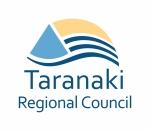Weed discovery puts boaties on alert
An invasive aquatic weed has been found in Lake Rotorangi, prompting a request for recreational users of the lake to help prevent it spreading.
Boats and other equipment should be well cleaned before departing Lake Rotorangi to help prevent the spread of hornwort, also known as coontail.
Hornwort is classed as an unwanted organism under the Biosecurity Act, and its sale, propagation and distribution is banned. It rapidly invades most freshwater habitats, crowding out native species and impeding drainage, irrigation and other uses.
“Hornwort is not listed in Taranaki’s regional pest plant strategy but it is banned nationally,” says the Taranaki Regional Council’s Compliance Manager, Bruce Pope.
“We’re particularly concerned about this discovery because many boaties who use Lake Rotorangi also use nearby Lake Rotokare, where the local community has put a great deal of effort into establishing a pest-free sanctuary.
“We’d also like people to watch out for it in other Taranaki waterways, and let us know if they see it.”
Hornwort is a submerged freshwater weed found in still and flowing waters, growing in depths of up to 16m in clear, deep lakes. Leaves are finely divided, with minute teeth which make the plant feel rough to the touch. It lacks roots but has modified leaves that anchor the plant in bottom sediments.
It is widely distributed in the North Island but until now there have been no confirmed reports of established infestations in Taranaki.
Mr Pope says its discovery here is a reminder that boaties and other recreational users should check and remove all weeds and unwanted material from boats and equipment before leaving any waterway.
For more information on hornwort, see www.biosecurity.govt.nz/pests/hornwort.

